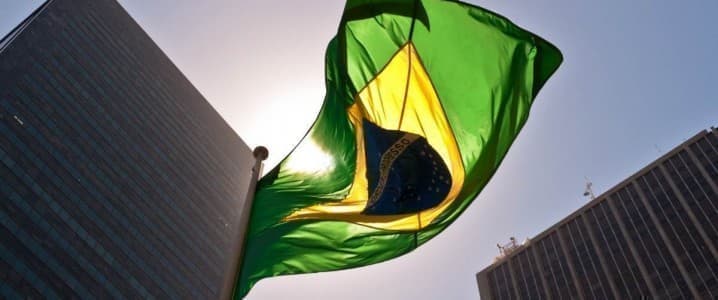Despite Exxon’s recent exploration hurdle, Brazil has big plans for its oil industry as it hopes to increase its production levels significantly throughout 2022. With uncertainty around what the Russian invasion of Ukraine will mean for the energy industry over the coming months, Brazil is hoping to fill a supply gap as countries around the world look for alternative oil and gas sources. In addition, the replacement of state-run Petrobras’s CEO could shake up Brazil’s oil and gas industry. Exxon Mobil Corp is currently exploring a new area off the northeast coast of Brazil, but its first well came up dry this week. This is Exxon’s first drilling development in Brazil in a decade, a region that it hopes will help boost its long-term production potential. The energy major has invested heavily in the Brazil and Guyana oil markets in recent years, in the hope of discovering new low-cost oil regions that will help sustain its output and where it can implement low-carbon technologies as it strives to eventually achieve net-zero.
With a stake in 28 offshore blocks, Exxon hopes this stumble will not hinder its production potential in the region. Exxon’s spokesperson, Meghan Macdonald, stated "While we didn’t encounter hydrocarbons at this particular exploration well (Cutthroat-1), ExxonMobil will continue to integrate the data from our findings into regional subsurface interpretation efforts in order to better understand the block’s exploration potential."
And some of Exxon’s other projects have been more fruitful. Its operations with Norway’s Equinor in the Bacalhau offshore field are expected to produce 200,000 bpd of oil and gas by 2024. In 2021, Exxon announced it would be investing 40 percent of an $8 billion total in the field.
Related: Saudi Aramco Further Tightens Its Ties To China
This month, Brazil’s Minister of Mines and Energy, Bento Albuquerque, announced plans to boost the country’s oil production by 300,000 bpd, around a 10 percent increase in 2021. Brazil’s output already stands at around 3 million bpd of crude putting it at around ninth place in the world for production.
Albuquerque told the Valor Econômico newspaper, “Countries that have stock, like the US, Japan, India, and others, are releasing. But there also has to be an effort to increase production. She [Jennifer Granholm] asked me if Brazil could be part of this effort and I said ‘of course it can’. We are already increasing production, while most OECD countries have reduced. We have increased our production in the last 3 years.”
The statement came in response to international pressure for oil-producing states to ramp up their oil and gas production as shortages are leading to energy insecurity and rising prices worldwide. Following the Russian invasion of Ukraine, oil prices soared. In addition, as several countries introduce sanctions on Russian energy products, many governments are looking for alternative sources of oil and gas to ensure their energy security over the coming months.
But some are not so confident about Albuquerque’s aim to increase production. There are plans for three offshore projects to come online in 2022 – the Petrobras Mero 1, with the Guanabara FPSO, producing approximately 150,000 bpd of oil, and Equinor’s Peregrino phase 2 and Peregrino 1 producing around 110,000 bpd. However, the reduced output in Brazil’s other maturing oil fields will likely reduce this output increase.
A local consultant told Bnamericas, “In reality, the increase would have to be over 15%, with 5% to 8% to compensate for the natural decline and another 10% to actually increase production. That would be 500,000b/d of new capacity, which is very unlikely.” This view has been echoed by several experts in the field, suggesting Albuquerque may not be able to deliver on his promise.
While this rapid production increase may not be possible, big changes to the country’s state-owned company could mean a change to the national oil industry is just around the corner. This week, President Bolsonaro moved to replace Petrobras CEO Joaquim Silva e Luna with a new head. The appointment of economist Adriano Pires as CEO of Petrobras and sports giant Rodolfo Landim as chairman is expected to take place in April.
Pires has been adamant in his stance on market pricing policies, pushing for the privatization of the state-run energy firm. Silva e Luna was appointed as CEO only last year after his predecessor was pushed out, suggesting somewhat of a trend. At present, Petrobras shields consumers from the global volatility of energy prices. But many have suggested that the oil prices should reflect the Brent Benchmark, adjusting fuel prices accordingly. However, with the next election taking place in October, Bolsonaro could lose voters if diesel and gasoline prices continue to rise.
Recent stumbling blocks in the search for new oil finds have not dampened Brazil’s optimism for developing its oil industry further over the coming years. As new operations come online, Minister of Mines and Energy, Bento Albuquerque, has announced production increases in response to international shortages. In addition, there is the potential for change in state-owned energy company Petrobras as a market-oriented CEO takes over.
By Felicity Bradstock for Oilprice.com
More Top Reads From Oilprice.com:
- Russian Crude Continues To Flow Despite Harsh Sanctions
- Why We Cannot Just “Unplug” Our Current Energy System
- Europe Is Facing Supply Disruptions As Russia’s Gas-For-Rubles Deadline Looms


















Brazil is now saying that it hopes to boost production in 2022 by 300,000 barrels a day (b/d) in 2022. But even this small production increase may not materialize.
The IEA has been touting Brazil as one of the non-OPEC+ producers who along with US shale oil and Guyana will be contributing significantly towards bridging any gaps between global oil supplies and demand. The IEA’s hype never ceases.
Dr Mamdouh G Salameh
International Oil Economist
Visiting Professor of Energy Economics at ESCP Europe Business School, London